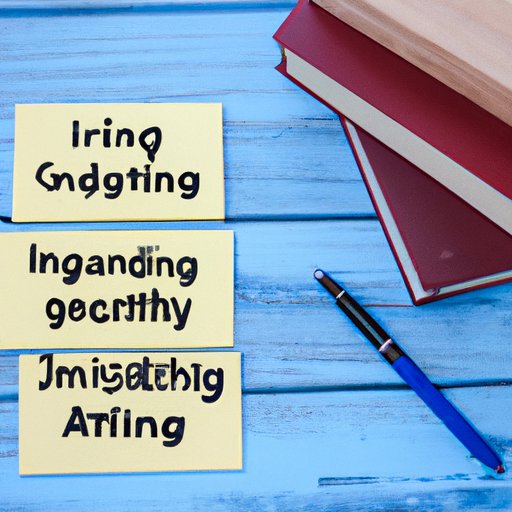
I. Introduction
Are you interested in becoming a real estate agent? If so, you have come to the right place. Becoming a real estate agent can be an exciting and lucrative career choice, but it requires hard work and dedication. In this article, we will outline the steps you need to take to become a successful real estate agent and provide useful tips for achieving your goals as a professional in the industry.
II. Start with the Basics
Before you begin your journey, it’s essential to understand the responsibilities and necessary skills of a real estate agent. A real estate agent serves as an intermediary between buyers and sellers of residential, commercial, and industrial properties. The goal is to help clients buy or sell properties and finalize transactions. Being a real estate agent is not just selling properties or finding a buyer; there are many other responsibilities involved, such as:
- Advising clients on market conditions, prices, and mortgages
- Creating and maintaining relationships with buyers, sellers, and other agents
- Marketing and promoting properties through listings, advertisements, and open houses
- Preparing necessary paperwork, including purchase agreements, closing statements, and leases
- Negotiating prices and terms of sales
Successful real estate agents have specific skills that help them excel in their role, including:
- Strong communication skills
- Patience and persistence
- An analytical mindset
- Marketing and sales skills
- The ability to form and maintain relationships with clients and colleagues
To become a real estate agent, you must complete the following licensing process:
III. Lay Out the Requirements
Education and training requirements vary from state to state, but most states require aspiring agents to complete a pre-licensing course at an accredited real estate school. The course will provide you with comprehensive knowledge of the industry, including topics such as:
- Real estate principles and practices
- Property ownership, transfer, and use
- Civil rights laws and consumer protections
- Specializations, such as appraisals and property management
After completing your coursework, you must sit for a licensing exam. The exam consists of two sections: a national portion and a state-specific portion. The national section covers basic real estate principles, while the state-specific portion covers laws, regulations, and practices specific to your state.
To pass the exam, it’s essential to study effectively and prepare adequately.
IV. Provide Study Tips
Studying for the real estate exam can be challenging, but with the right techniques and resources, you can increase your chances of success:
- Develop a study schedule and stick to it
- Create a study group with other aspiring agents
- Use flashcards to memorize key terms and concepts
- Focus on weak areas and review them regularly
- Take practice exams to simulate test day
There are many resources available to help you study for the real estate exam, including online courses, books, and practice exams.
V. Discuss the Importance of Networking
Networking is a vital component of success in the real estate industry. Building relationships with other agents and professionals not only helps you secure clients but also helps you stay informed about current trends and developments in the industry.
Some methods for networking include:
- Attending industry events and conferences
- Joining local real estate associations
- Volunteering for community events and activities
- Reaching out to former clients and colleagues
VI. Share Lessons from Experienced Agents
Experienced agents have valuable insights into what it takes to succeed in the industry. Reach out to established agents in your area and ask them to share their success stories, tips, and lessons learned. Their advice can help you understand what works well and what doesn’t, and be a source of inspiration and encouragement.
VII. Provide Strategies for Finding Leads
Generating leads is an essential part of being a real estate agent. Here are some strategies to help you find potential clients:
- Hosting open houses and property showings
- Advertising on social media platforms and real estate websites
- Building a personal website and blog
- Connecting with local businesses and neighborhood associations
By exploring different avenues for finding clients, you can increase your chances of success and grow your business.
VIII. Discuss Ongoing Professional Development
To stay competitive in the real estate industry, it’s vital to continue learning and growing. Consider pursuing continuing education and certification opportunities to deepen your knowledge and expertise. This can help you build credibility and differentiate yourself from other agents in your area. Stay up-to-date on industry trends, news, and best practices to stay relevant in a constantly changing industry.
IX. Conclusion
In conclusion, becoming a real estate agent is a process that requires commitment, hard work, and dedication. It’s not just about taking courses and passing an exam; it’s about building relationships, learning from experienced agents, generating leads, and continuing to grow and develop over time. By following the steps outlined in this article, you can set yourself up for success in the real estate industry.




